Are you thinking about getting a guard dog? You'll want to know how friendly they are and how they will behave around your family. In this post, our Glendale vets list the best guard dogs for families that have proven to be protective and lovable pets.
When deciding whether to get a dog to protect your family, you'll need to consider many factors. These may include whether they will get along well with your kids and other pets. You'll also need to consider the dog's size and whether your living environment will support a specific breed's needs and energy level. Here are our top picks for best guard dogs.
German Shepherd
A quintessential choice for most when thinking of getting a guard dog, the German Sheperd is known for being brave, but gentle and loving toward their family members. They will do their best to protect and guard the ones they love. These qualities make them great for families.
This breed is excellent at listening, learning, and obeying commands when properly trained. Be sure to check that your breeder is reputable and meet the dog's parents if possible to ensure your new pup is coming from a healthy environment.
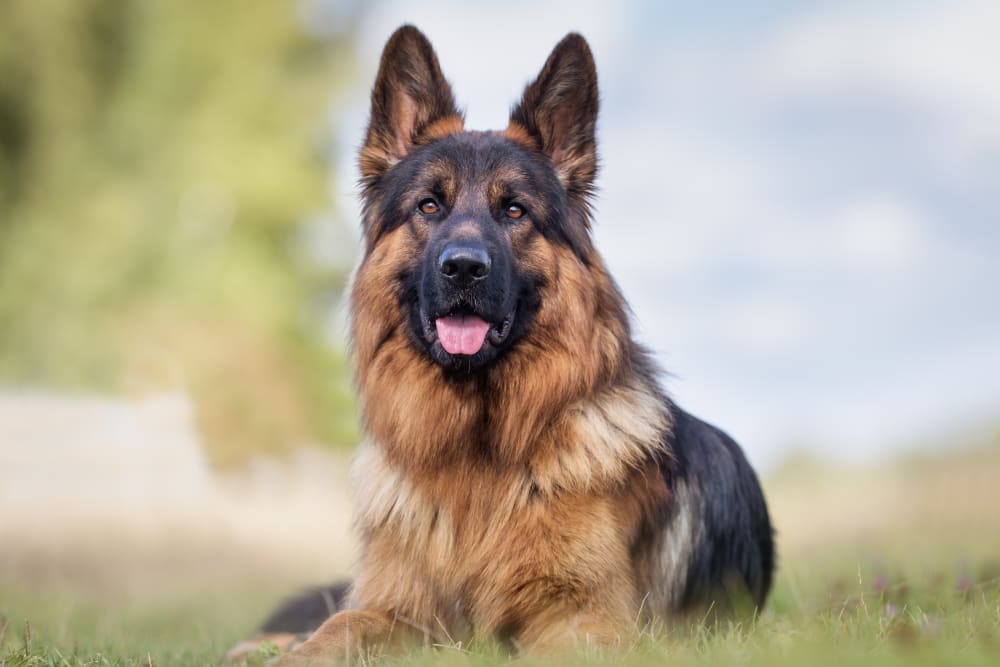
Rottweiler
A well-trained rottweiler can become a loving family pet and an excellent guard dog, even for those with small kids. They will be loyal and obey your commands. Rottweilers are also among the smartest breeds in the world.
The key to ensuring your rottweiler will be a good family pet is training it well. Without stern training, they may become aggressive. We also recommend socializing rottweiler puppies regularly since they are naturally wary around strangers.
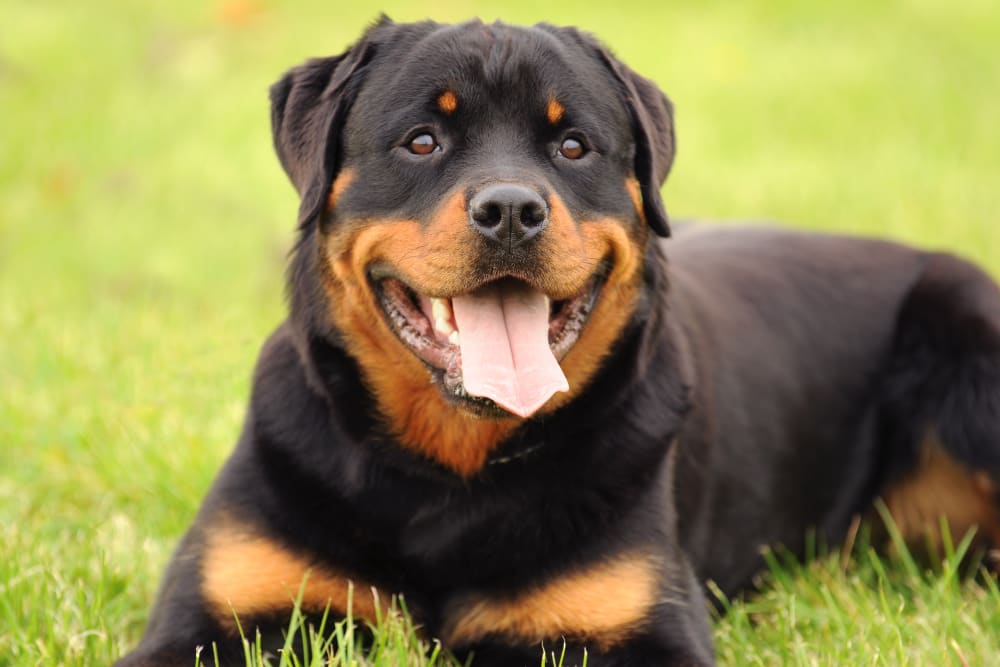
Doberman Pinscher
Another highly intelligent breed, the Doberman pinscher can look intimidating but are extremely loyal. With proper obedience training, they will follow your orders well.
Doberman pinschers also typically have lots of energy, so they will require daily exercise and physical activity. We recommend raising a Doberman pinscher from puppyhood instead of bringing an adult one home. Because this breed can be very destructive, it's important to train them well from a young age.
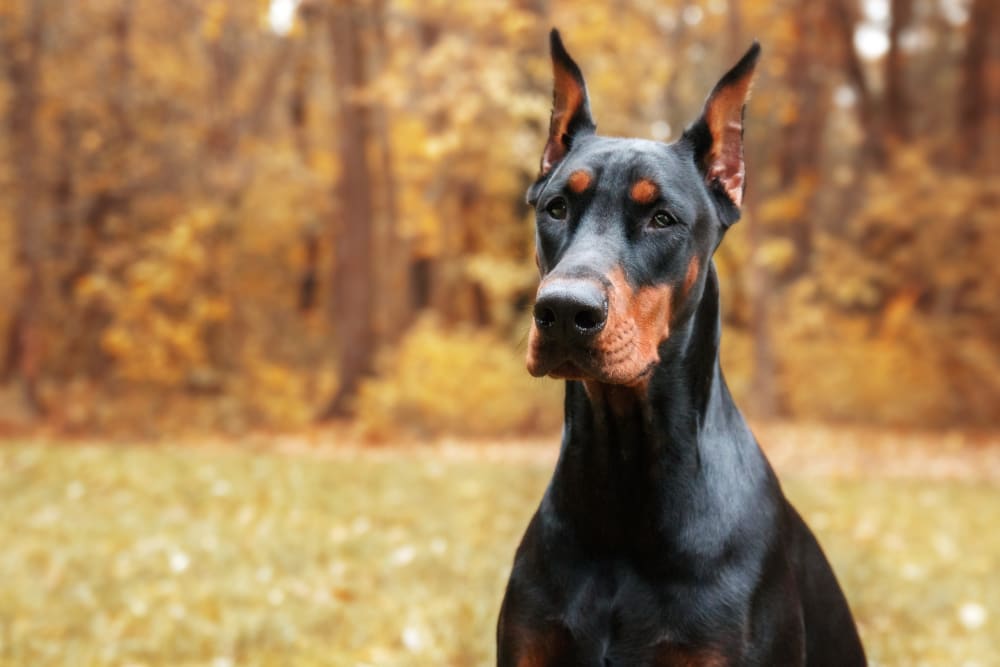
Boxer
Boxers can look menacing and have a knack for sensing people's intentions. This medium-to-large-sized dog is a friendly, athletic, and fun-loving breed that will be highly protective of its owners. They do not have a violent streak and will often seek your love and attention.
Be prepared to take your boxer out for daily physical activity and exercise, since they are another energetic breed.
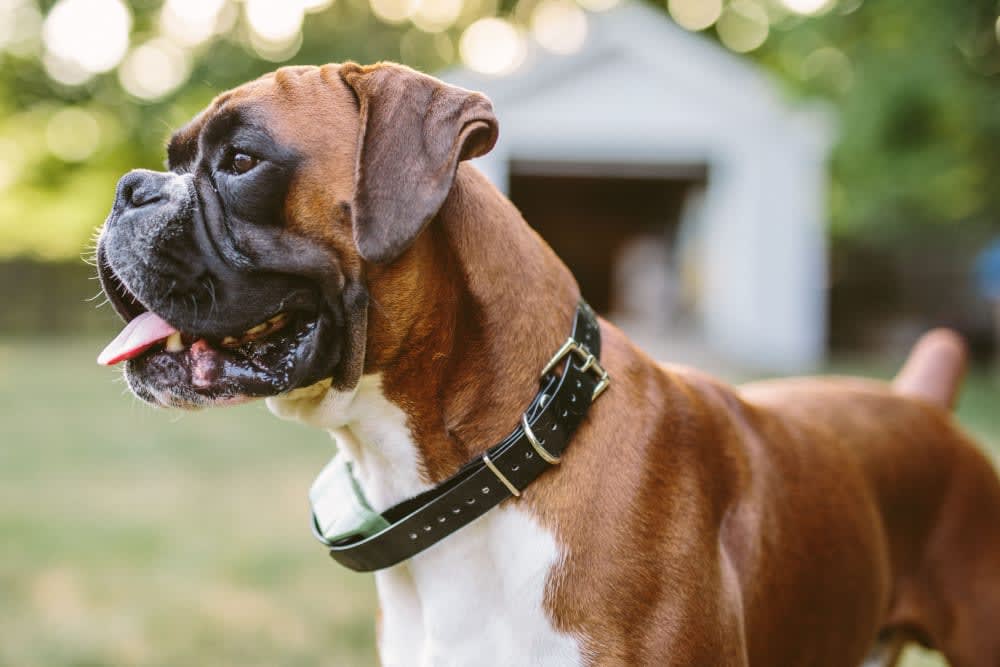
Bernese Mountain Dog
A great watchdog, the Bernese mountain dog is a large breed. However, you should beware it won't typically go out of its way to attack an intruder. They will bark if something suspicious is happening and are cautious around strangers.
Bernese mountain dogs also love to be around children and is very playful. However, they've got a lot of fur, so will need to be brushed and groomed on a regular basis.
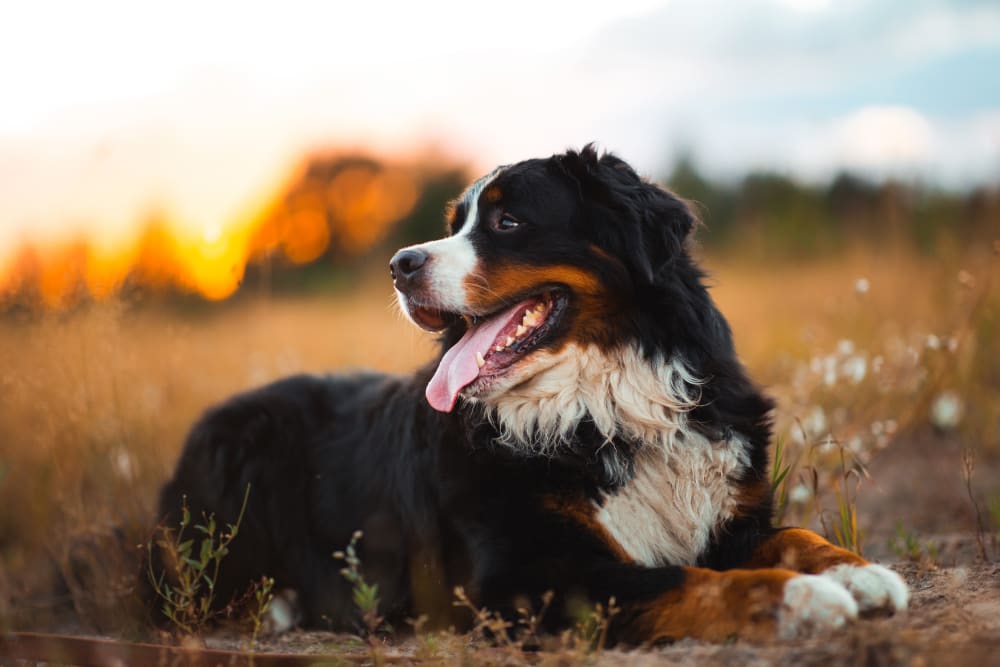
Giant Schnauzer
Another large breed, the giant schnauzer can look intimidating enough to ward off strangers. If you raise one of these intelligent and loyal dogs alongside your kids and family, they will also be very good with children. However, they will need daily brushing and grooming.
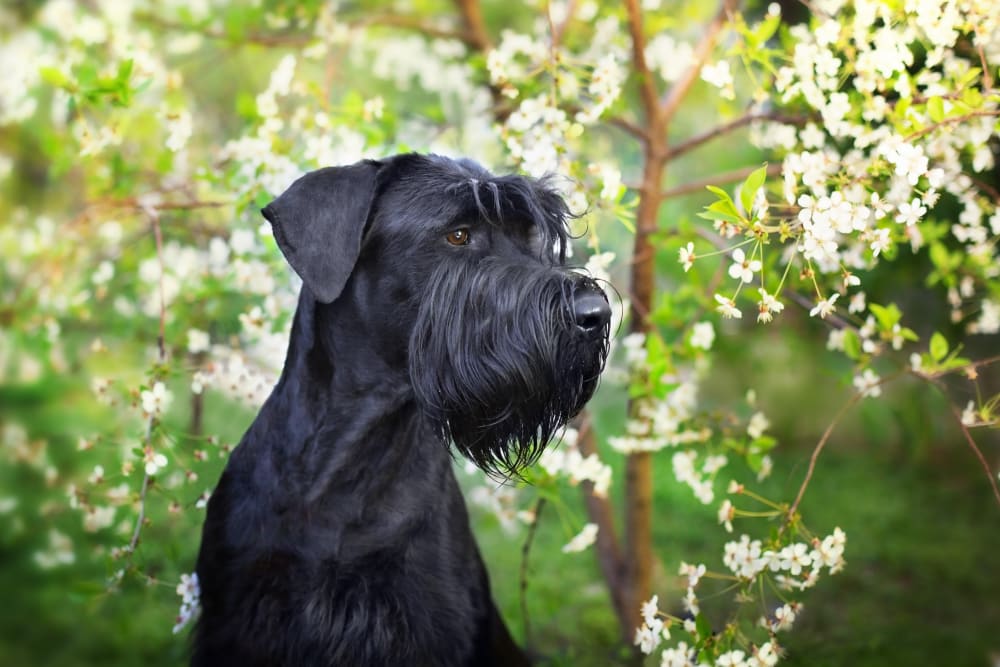
Great Dane
Great Danes are very big and have a loud bark, making them good at scaring away intruders. However, this dog is very gentle and patient with kids, as well as makes friends easily. They are better watchdogs than they are protectors because of their kind nature.
This breed requires lots of exercise through daily walks and lots of positive reinforcement obedience training from the beginning. They also need lots of attention and supervision until they are used to the rules and become accustomed to your home.
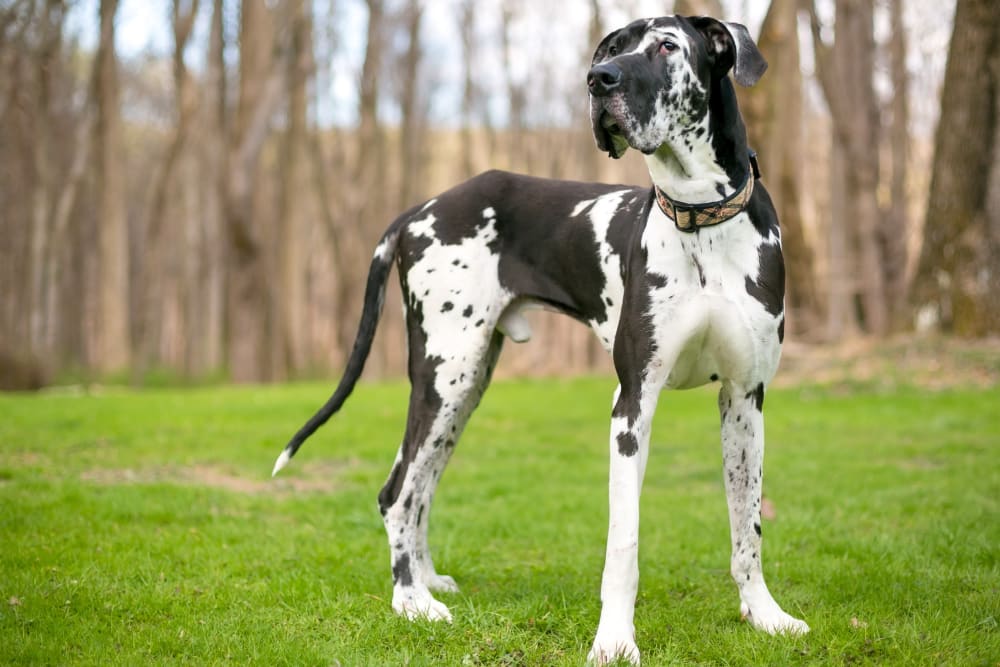
Great Pyrenees
With training and guidance, this large, furry breed can make a loyal and protective guard dog. They are gentle and can adapt to the dynamic of your family and home but will be cautious of guests and intruders making them the perfect companion and guard.
The reason why this dog wasn't placed first on the list is that they are hard to train. They have to be trained with love and attention from their puppy days because when they are young they have the habit of barking and growling, they won't grow out of this without training. They also challenge the leadership of their owners which makes them more difficult to train.
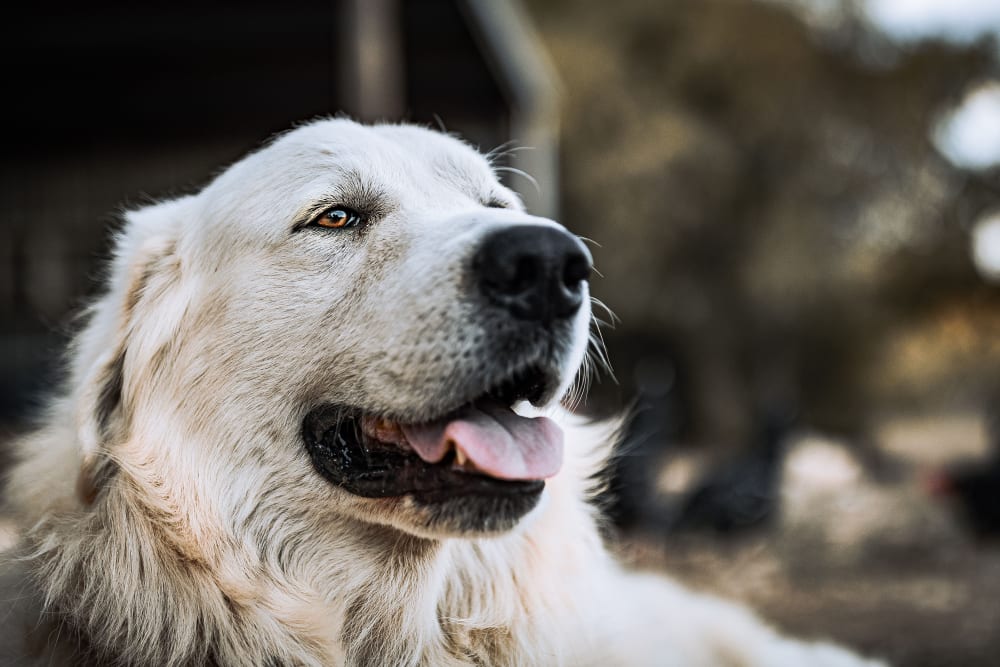
Note: The advice provided in this post is intended for informational purposes and does not constitute medical advice regarding pets. For an accurate diagnosis of your pet's condition, please make an appointment with your vet.
